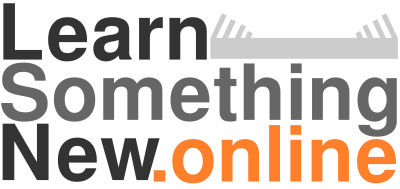Learning (Page 3 of 3)

Polyglots' Secrets: Effortless Strategies for Learning Multiple Languages
Mastering multiple languages is an impressive feat that fascinates many. Polyglots, people who have learned numerous languages, often approach this task with a combination of passion and strategy. These individuals provide living proof that with the right mindset and techniques, fluency in various tongues is attainable. Their secrets, ranging from cognitive strategies to the incorporation of language into daily life, are not guarded enigmas but patterns and habits that can be adopted by anyone with the will to learn.

The Benefits of Peer-to-Peer Learning in Adult Education: Fostering Collaborative Growth
In the realm of adult education, peer-to-peer learning stands out as a powerful tool for enhancing the learning experience. By engaging with a learning community of fellow students, you have the opportunity to exchange knowledge, skills, and insights that can greatly benefit your own educational journey. Unlike traditional classroom environments, peer-to-peer learning emphasizes collaborative efforts and can lead to a more engaging and dynamic learning process. By leveraging the diverse backgrounds and experiences of peers, you not only gain new perspectives, but also contribute to the collective growth of your learning community.

The Science of Neuroplasticity: Unlocking the Secrets of Lifelong Learning
Neuroplasticity, the brain’s remarkable ability to reorganize itself by forming new neuronal connections throughout a person’s life, stands as the cornerstone of lifelong learning. This ability allows the brain to compensate for injury and disease, to adjust to new experiences, and to incorporate learning and memory. At the core of lifelong learning, neuroplasticity challenges the once-held belief that the brain’s structure is static after a certain period of growth. Instead, it proposes that our brains are malleable and can continue to change and adapt as we engage with new knowledge, skills, and experiences.

5 Unconventional Learning Methods to Speed Up Your Personal Growth Journey
Personal growth is a journey that often follows the well-trod path of traditional learning and self-improvement strategies. However, embracing less conventional methods of learning can open doors to new insights and accelerated development. Unconventional learning goes beyond the classroom and the typical self-help books, utilizing real-world experiences and creative techniques that compel you to think differently. These methods foster an environment that catalyzes growth and change. Embracing these unconventional methods means getting comfortable with the uncomfortable, often by reframing your perception of failure, diversifying your reading habits, and engaging in creative expression.

The Art of Self-Education: Mastering New Skills on Your Own Terms
Self-education is an empowering process that invites you to take charge of your own learning. With the vast amount of information available at your fingertips, you have the unique opportunity to learn new skills, expand your knowledge, and grow both personally and professionally on your own terms. This journey is not just about acquiring information; it’s about developing the ability to teach yourself anything you desire to learn. By becoming a self-learner, you embrace a mindset that values curiosity and adaptability, key traits in today’s ever-changing world.

The Power of Audiobooks: Enhancing Your Commute with Educational Adventures
Commutes often represent a significant portion of our day, frequently consisting of idle time spent in traffic or on public transportation. Audiobooks have surged in popularity as a practical solution for transforming these otherwise stagnant periods into valuable opportunities for learning and personal development. By converting this time into an immersive auditory experience, you can absorb knowledge, enjoy literature, or explore new ideas, all while carrying on with your daily travel routine.

Learning to Learn: Strategies to Boost Your Brainpower Efficiently
Enhancing cognitive abilities is a dynamic and continuous process that is essential in our rapid, information-rich world. Cognitive skills are the core skills your brain uses to think, read, learn, remember, reason, and pay attention. Working together, they take incoming information and move it into the bank of knowledge you use every day at school, at work, and in life. Improving these skills can lead to better work performance, improved learning, and an overall increase in productivity.

Cultivating Curiosity: Unlocking Personal Growth Through Inquisitive Thinking
Curiosity is an innate attribute of human beings, often observable as a burning desire to know more about the world around us. It drives individuals to explore, inquire, and learn beyond their immediate realm of knowledge, thereby enriching their lives with a broader understanding of the universe and their place within it. The pursuit of curiosity is not only about seeking answers but also about embracing the process of discovery and being open to the unexpected insights that come along the way.
